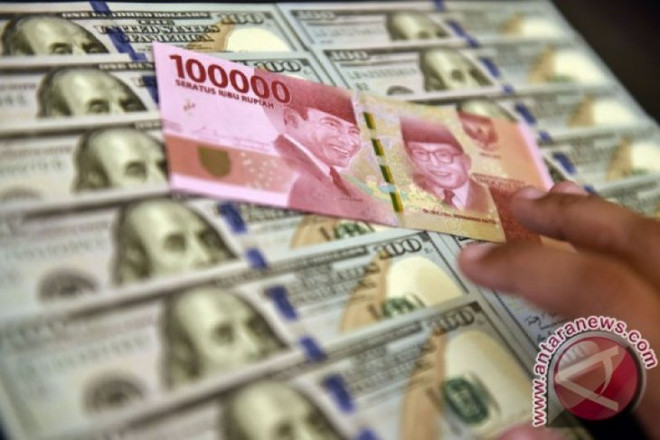Jakarta (VNA) – Indonesia’s rupiah (IDR) on March18 touched the lowest level since the 1998 crisis as fears of a globalrecession over the rapid spread of the novel coronavirus disease (COVID-19)prompts investors worldwide to dump financial assets.
The currency depreciated around 0.3 percent to 15,222 IDR perUSD as of 12:52 pm (local time), Bloomberg data shows.
The last time it touched the level and reached 16,650 IDR wasin June 1998 after widespread rioting that led to the downfall of PresidentSoeharto, who ruled Indonesia for 32 years.
The rupiah is now Asia’s worst-performing currency afterdepreciating around 10 percent so far this year from 13,635 IDR per USD onJanuary 24, a time when the rupiah was Asia’s best-performing currency.
Investors are fleeing out of the emerging market into safehaven assets because they see the probability of a global recession hasheightened, according to Bank Permata economist Josua Pardede.
Foreign investors have dumped more than 4 billion USD fromrupiah bonds this year, on course for the biggest quarterly outflow ever, andhave dumped about 600 million USD worth of shares, Bloomberg reported.
The benchmark Jakarta Composite Index (JCI), the main gaugeof the Indonesia Stock Exchange (IDX), has lost 31.25 percent of its value sofar this year, suffering three trading halts within a week as the index dropped5 percent, triggering a circuit breaker.
Josua said the rupiah’s depreciation was also influenced bythe fact that the government had yet to allot a significant amount of fundingfrom the state budget to tackle the virus, though it has allocated 120 trillionIDR (7.7 billion USD) to stimulate the economy and cushion economic shocks fromthe COVID-19 pandemic.
As of March 18, the coronavirus infected at least 227 people inIndonesia and killed 19.
As the situation has yet to show signs of improvement, Josuasaid Bank Indonesia (BI) should maintain close contact with foreign investorsto give them assurances and at the same time, continue its market interventionin the bond market.
The BI cut its policy rate and announced five measures tostabilise the rupiah, including buying government bonds in the secondary marketand cutting the reserve requirement ratio for banks’ dollar funds./.





























